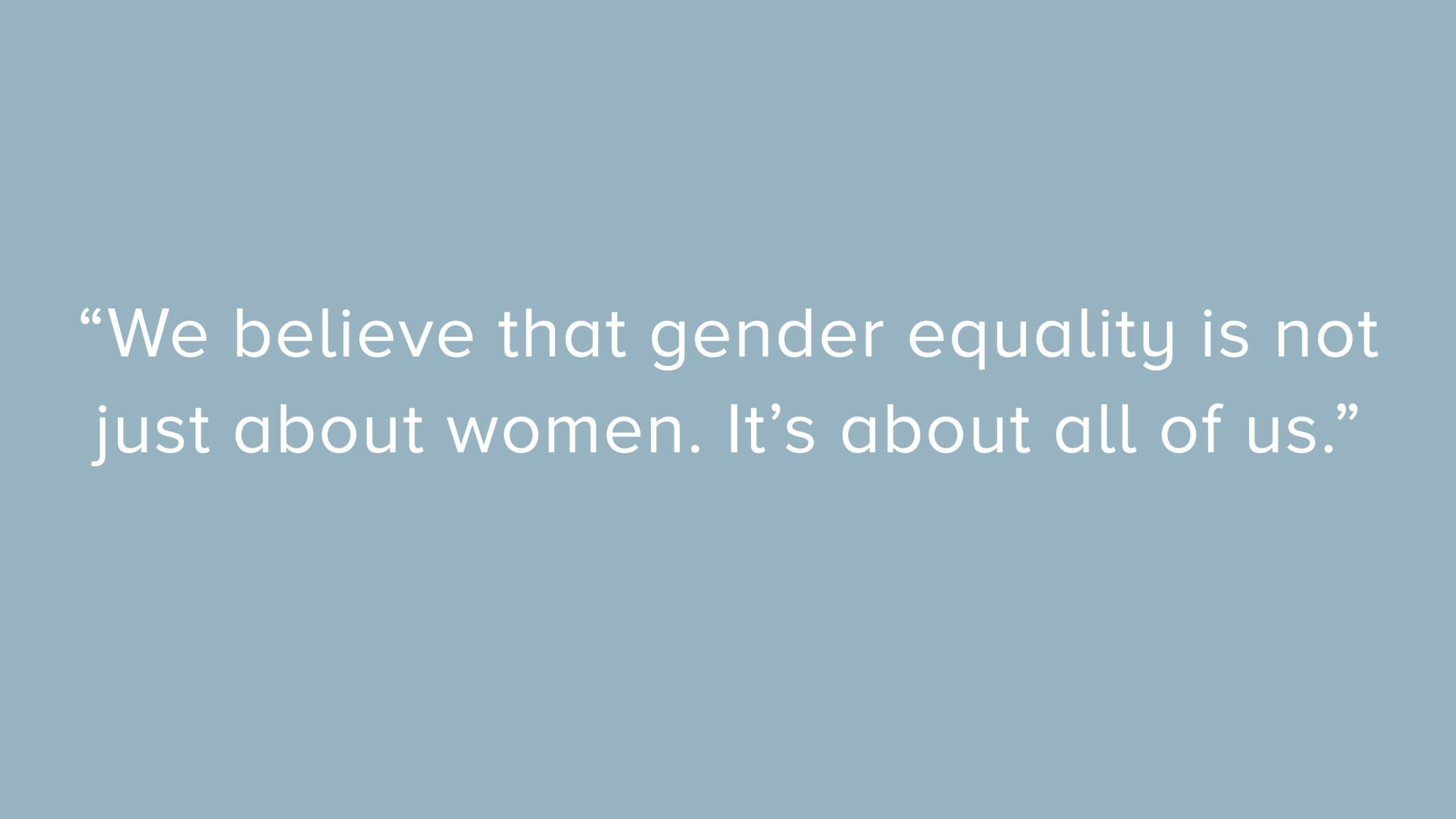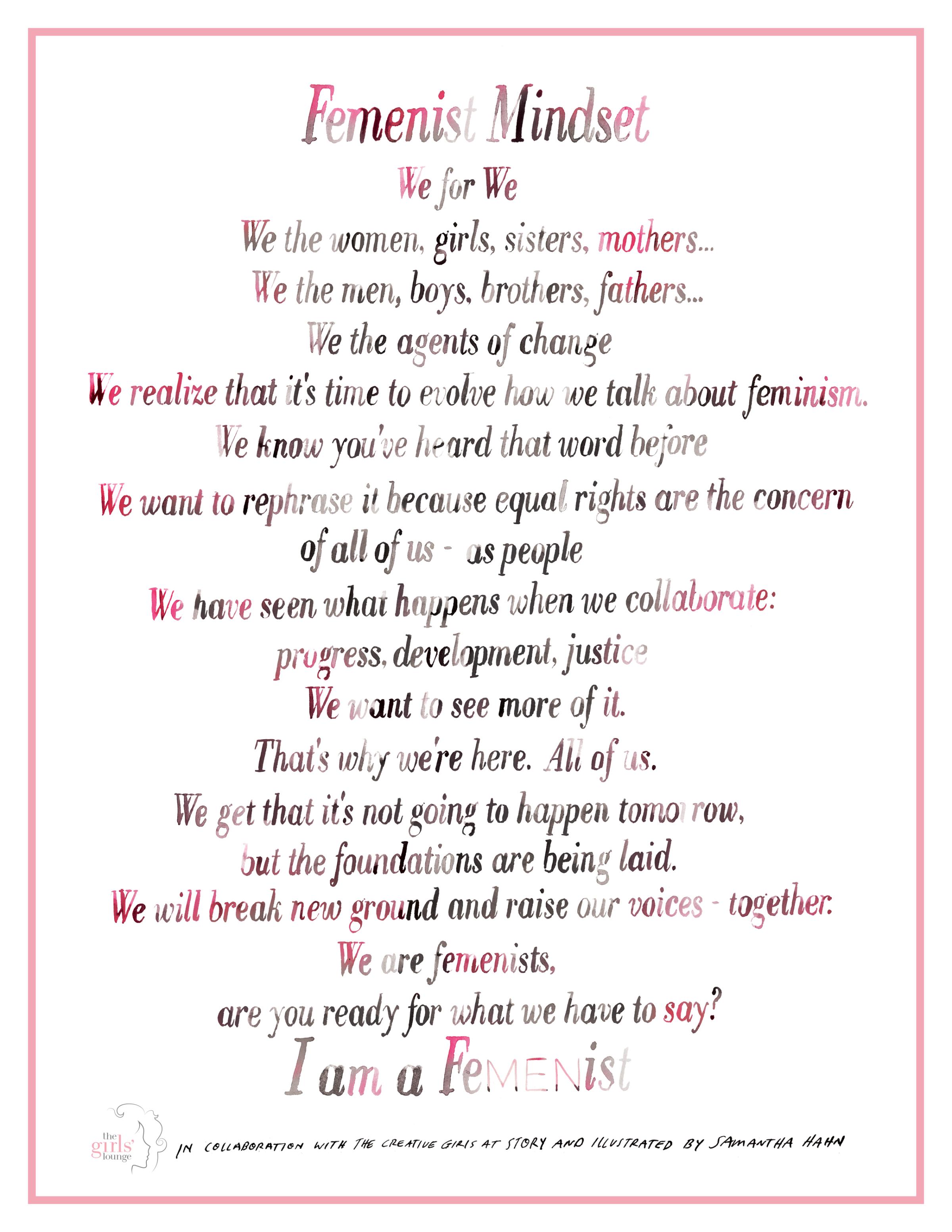
Modern technology is both amplifying and accelerating the discourse on women’s empowerment and gender equality, and I couldn’t be more excited to see that catalyst at play, moving the issue forward.
But despite the ambient sense of progress, in November, the U.S. dropped from 20th to 28th on the World Economic Forum’s Global Gender Gap Report, a measure of how 145 countries treat women in their labor force. While northern European states like Iceland, Norway, Finland and Sweden topped the poll, the United States also fell behind countries like Rwanda, Estonia, Burundi and Nicaragua.
We’re going backward, and it’s time to stop and figure out why. It’s time to start activating transformative solutions that will change our national business model from one of gender disparity into one that will balance the picture for this and future generations.
That’s why at the World Economic Forum meeting in Davos in January, The Girls’ Lounge launched the “Femenism Mindset.” We’re unveiling “Femenism” to include the word men and rethink feminism as we know it, right down to the root of the word. Under femenism, we concretely work toward a culture that fully accounts for the value of female and male collaboration. We believe that gender equality is not just about women. It’s about all of us. It’s a social and economic issue that we need to resolve in our times. And we believe that transformation must include men. As a paradigm, it’s not just “she for she” or “he for she.” It’s “we for we.”

Rankings like the Global Gender Gap Report stem from a desire to use metrics to create accountability, especially when it comes to equality in the workplace. But for that accountability to exist at the individual company level, we need to establish standards that those companies can follow. We need to define what it means to move toward equality by looking hard at how we do things today.
In Davos, we hosted numerous conversations and workshops on the advantages of gender-balanced corporations. We all agreed to continue to work together to evolve our conversations into action over the course of 2016. Collectively, we are developing a roadmap for those who want to be part of the solution.
We’re adding context to the gender equality conversation by breaking it down into three themes: Closing the wage gap, eliminating unconscious bias and creating company cultures that can support both women and men in the workplace. Of those three, the wage gap currently tends to get the most attention. But all three initiatives are vital to advancing the conversation. In eliminating unconscious bias, we need to take a hard look at the way we recruit executives and groom talent within corporations. Women have more collaborative and team-building skills that are vitally important for today’s leaders.
As John Gerzema and Michael D’Antonio wrote in The Athena Doctrine, traits that are widely associated with women—ones like flexibility, connectedness and trustworthiness—are widely valued and increasingly necessary in the workplace.
So how do we make these qualities more imperative in the executive recruiting and talent development process? That speaks to the third part of our conversation: Creating a new company culture that supports equality in the workplace. We need to craft company cultures that foster work-life balance. This isn’t just a women’s issue; it’s an issue that impacts fathers struggling to take care of their children and all adults caring for their elderly or dependent loved ones. It makes good business sense to create a caring culture across the corporate landscape.
There is a cultural uprising afoot; women and men want the power to talk about these issues in a way that allows for transformational change to happen. We have to work collaboratively on gender equality as both a social and economic concern. This year is an opportunity, a moment for reflection and innovation in how we understand and create gender-balanced corporations. We have the power to change the status quo, and we’re setting out to use it.
Shelley Zalis is CEO and founder of The Girls’ Lounge, which encourages women to embrace their feminine leadership powers.
More Must-Reads from TIME
- Cybersecurity Experts Are Sounding the Alarm on DOGE
- Meet the 2025 Women of the Year
- The Harsh Truth About Disability Inclusion
- Why Do More Young Adults Have Cancer?
- Colman Domingo Leads With Radical Love
- How to Get Better at Doing Things Alone
- Michelle Zauner Stares Down the Darkness
Contact us at letters@time.com